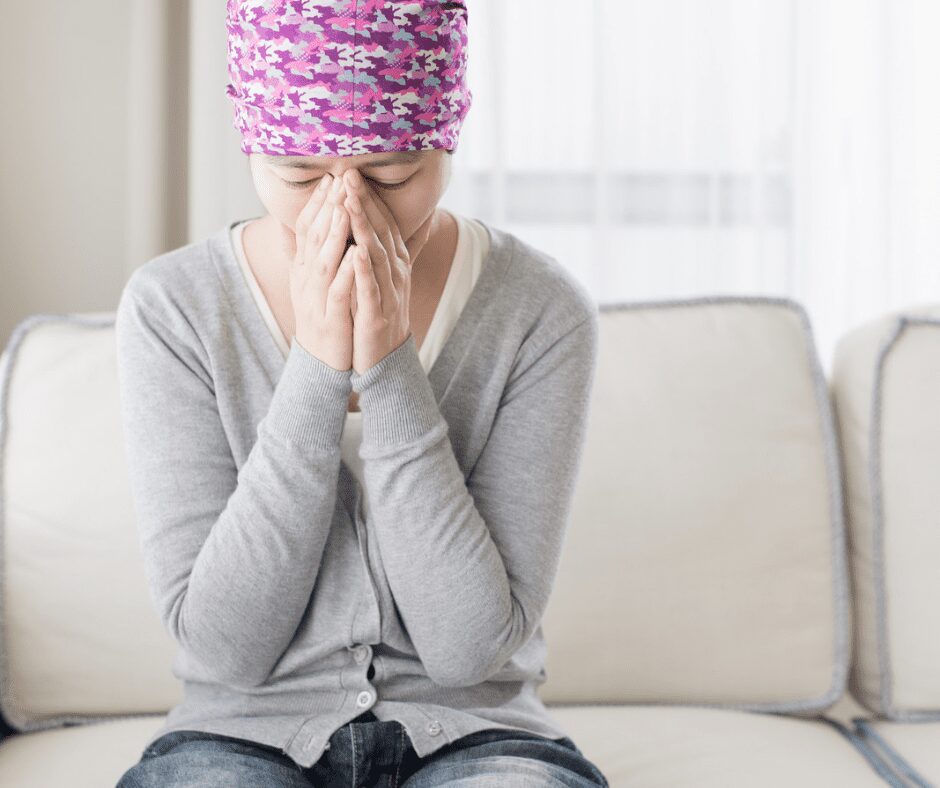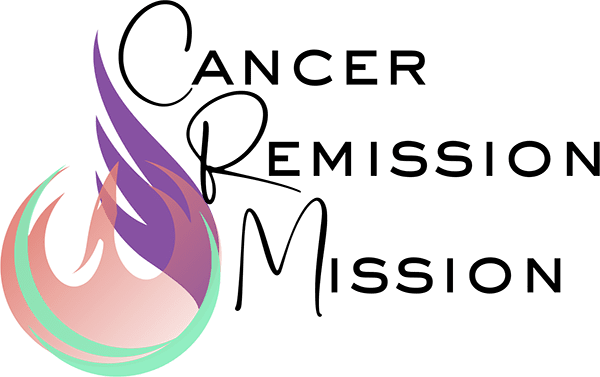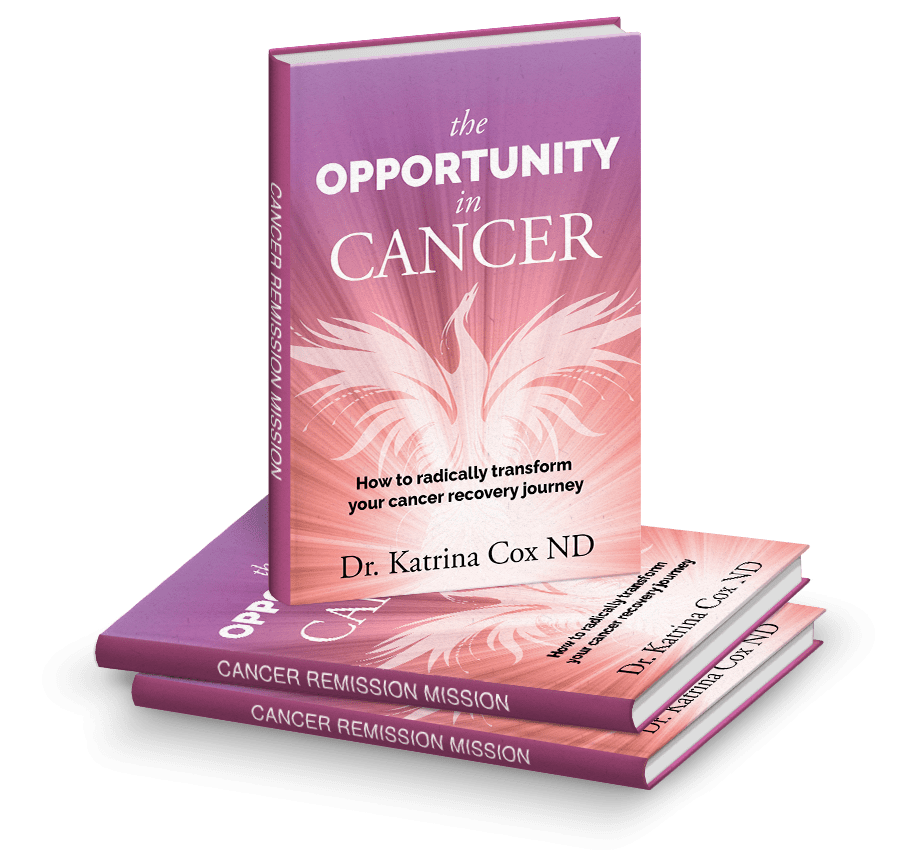Even after cancer remission, full recovery can take a long time. Fatigue is a major concern for cancer survivors and can have a massive impact on an individual’s quality of life. The cancer experience has a profound impact on both our physical and our mental health, leaving many feeling exhausted and depleted. One of the biggest roadblocks to overcoming a cancer survivor’s fatigue is anxiety.
A recent large study, done in Korea, demonstrated that cancer survivors and their family members struggled with undiagnosed depression and anxiety three to four times more than the general population. That means that 30 to 40% of cancer survivors are struggling with anxiety.
How Does Mental Health Impact Energy Levels?
 Anxiety is a big drain on an individual’s energy because much of the focus and attention is spent on ruminating thoughts and uncomfortable feelings. These ruminating thoughts can be complex. The reality is that a cancer diagnosis, as well as cancer treatment itself, is a traumatic life experience. Emotional distress is a natural side effect when the worst-case prognosis of a medical diagnosis is death. It can provoke deep introspective thoughts about our own life. It can create an odd scenario where opposing thoughts exist, like fear and hope.
Anxiety is a big drain on an individual’s energy because much of the focus and attention is spent on ruminating thoughts and uncomfortable feelings. These ruminating thoughts can be complex. The reality is that a cancer diagnosis, as well as cancer treatment itself, is a traumatic life experience. Emotional distress is a natural side effect when the worst-case prognosis of a medical diagnosis is death. It can provoke deep introspective thoughts about our own life. It can create an odd scenario where opposing thoughts exist, like fear and hope.
Without the opportunity to fully process each part of the journey, many survivors find themselves experiencing depression, characterized by sadness, apathy, being stuck in the past, and anxiety, which can feel like an overwhelming worry about the future and include panic attacks for some. Those with a pre-existing anxiety disorder may be at an even higher risk for anxiety and severe depression after cancer. Post-traumatic stress disorder is a common occurrence for cancer survivors, even for long-term cancer survivors, who have been in remission for decades.
Being told cancer is in remission does not always bring an immediate improvement to an individual’s mental health or quality of life. It can take time to adjust to the “new normal”. After the emotionally intense experience of cancer treatment and long periods of constantly waiting for the unknown to happen, “cancer remission” doesn’t always bring instant relief. Daily life can feel uncomfortable and strange at times as you continue to adjust mentally.
When it comes to cancer survivor anxiety, one of the biggest worries is “how do we fix it?”. The worry changes from surviving cancer, to the fear of cancer recurrence.
For cancer survivors that want to become thrivers, I usually recommend that we take a look at different types of treatment that complement each other. Anxiety does not have a single treatment option, and the treatment must be tailored to the individual and their needs.
First and foremost, it is important to make sure that there’s counseling and emotional support, which may include cognitive behavioral therapy (i.e. “talk therapy”). You may have already received support from a counselor, social worker, or clinical psychologist as part of your cancer care during treatment. I recommend to everyone to continue with this even after cancer remission, if you can. Having an opportunity to share your personal stories, whether it be with mental health professionals or a supportive family member, can provide healing.
An experienced healthcare provider will also ask you questions about your level of anxiety and depression at regular follow-up visits too, so use these opportunities to share any mental health challenges you’ve been experiencing. They will be able to refer you to local support groups and social workers in the community if that is what you need.
Mindfulness meditation, hypnosis, reiki, massage therapy and acupuncture are all wonderful tools that can be used to support healing from anxiety and reestablish a balance in our nervous system, our mind, and our thoughts. Mindfulness-based stress reduction practices, like journaling and breathwork, can also be incredibly helpful in calming the body and processing your thoughts. It isn’t about ignoring fears. The fear of recurrence is valid and must be acknowledged. Instead, it is about finding a balanced way of processing those thoughts and fears. This balance allows our body to focus on creating energy to actually have energy moving forward.
Ellen’s Experience with Fatigue
When I talk about energy and recovery, I am always reminded of a young woman I worked with, we’ll call her Ellen. She was a mom of two, and after treatment for breast cancer, she found that she didn’t have enough energy to play with her kids and take care of them. This was a big problem. At the root of her overwhelming fatigue was anxiety. Her anxiety was crippling, to the point where she couldn’t get out of bed. She struggled to be able to take care of her children, and the fear and thoughts of it coming back and not being on this planet were occupying her mind every moment of the day.
What did we do to support her anxiety and improve her energy? We were able to help Ellen by doing acupuncture two times a week and getting her to journal and work with a therapist on a regular basis. Within a month, Ellen had her energy recovered, and was able to play with her kids, be able to put them to bed, and walk them to school every day. She felt like she had a new lease on life.
If you’d like to recover your energy like Ellen and become a cancer thriver, not just a survivor, I recommend that you check out a copy of my book, the Opportunity in Cancer.




